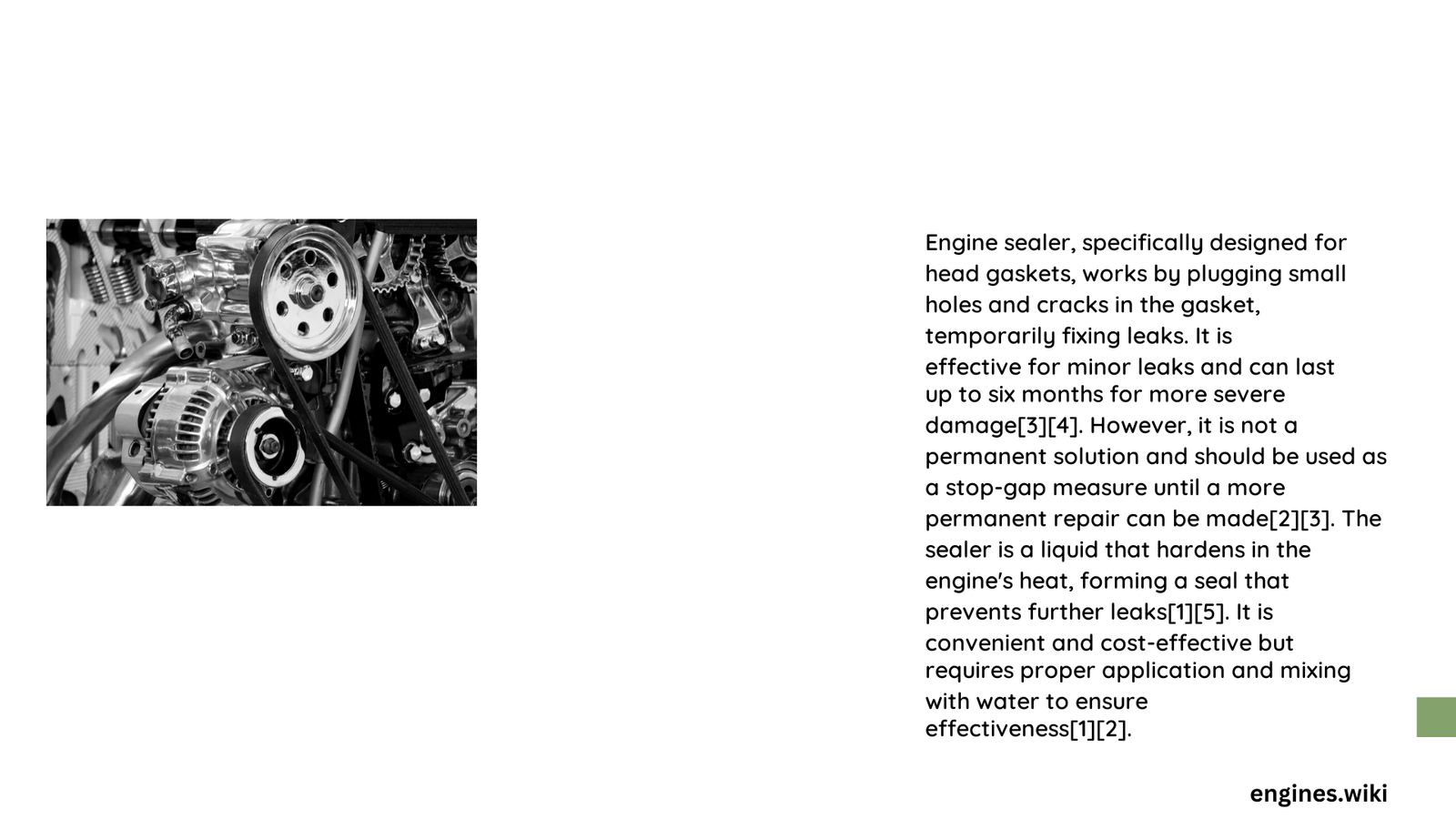Engine sealers represent a potential cost-effective solution for minor engine leaks, offering vehicle owners a temporary fix that can prevent catastrophic engine damage. These specialized chemical compounds can temporarily seal small gaps in head gaskets, providing a short-term remedy for oil and coolant leaks without requiring extensive mechanical intervention. However, their effectiveness varies based on leak severity, engine condition, and proper application technique.
What Determines Engine Sealer Effectiveness?
Can Engine Sealers Actually Resolve Leaks?
Engine sealers work through a complex molecular interaction with engine components. Their success depends on several critical factors:
Leak Characteristics
- Size of Leak: Sealers work best with minor, pinhole-sized leaks
- Location of Damage: Most effective in head gasket and small surface imperfections
- Material Compatibility: Works better with cast iron engines compared to aluminum blocks
Performance Metrics
| Leak Type | Sealer Effectiveness | Recommended Action |
|---|---|---|
| Tiny Holes | 70-80% Success Rate | Direct Sealer Application |
| Small Cracks | 40-60% Success Rate | Professional Evaluation |
| Extensive Damage | 10-20% Success Rate | Full Mechanical Repair |
How Do Engine Sealers Function?
Engine sealers operate through a sophisticated chemical process:
- Penetration: Liquid sealer flows through engine passages
- Identification: Sealer targets and fills microscopic gaps
- Hardening: Chemical compounds solidify under engine temperature
- Bonding: Creates temporary seal between metal surfaces
What Are Potential Limitations?
While engine sealers offer temporary relief, they aren’t permanent solutions:
- Not Suitable for Severe Damage
- Potential Blockage of Small Passages
- Temporary Fix (Typically 500-3000 miles)
- May Mask Underlying Mechanical Issues
When Should You Consider Engine Sealer?
Recommended scenarios include:
- Minor coolant leaks
- Small head gasket imperfections
- Budget-conscious repairs
- Preventative maintenance
Expert Recommendations
Automotive professionals suggest:
- Always diagnose root cause
- Use high-quality, manufacturer-recommended sealers
- Follow precise application instructions
- Consider professional evaluation for complex issues
Cost-Benefit Analysis
| Repair Option | Average Cost | Duration | Reliability |
|---|---|---|---|
| Engine Sealer | $20-$50 | Temporary | Low-Moderate |
| Professional Repair | $500-$2000 | Permanent | High |
Conclusion

Engine sealers can work for minor leaks but aren’t a universal solution. They provide a temporary fix that might buy time for more comprehensive repairs. Always consult a professional mechanic for definitive diagnosis and long-term solutions.
Pro Tips
- Inspect engine thoroughly before application
- Choose sealer compatible with your specific engine
- Monitor engine performance after application
Reference:
– SAE Technical Paper on Engine Sealing
– ASE Automotive Repair Guidelines
– Automotive Maintenance Research Institute
